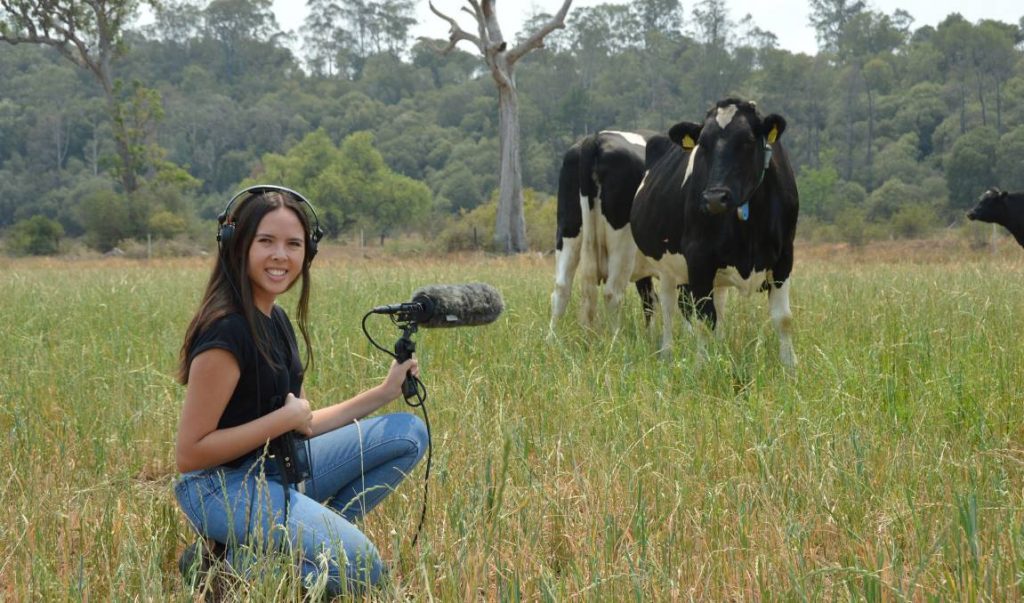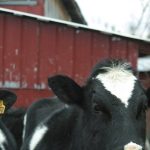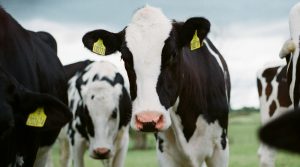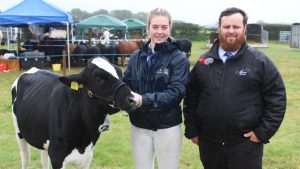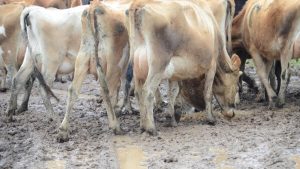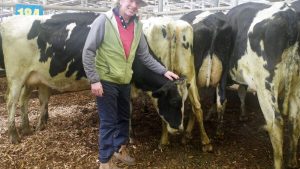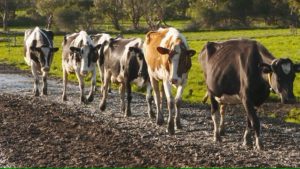
University of NSW PhD student Alexandra Green has spent the past four years listening to dairy cattle and has determined cows have idiosyncratic voices and give different cues through their voices – effectively they ‘talk’ to one another and retain identity through their lowing.
Her work with Holstein Friesian heifers found these individual voice cues in a variety of positive and negative situations helps them to maintain contact with the herd and express excitement, arousal, engagement or distress.
The duration of the call, the pitch and the loudness is individualised, she said.
Ms Green believes there is potential for farmers to use that knowledge to assess welfare in a non-invasive manner.
She is hoping technology around call monitoring can be developed which will alert producers when a cow is in need of something.
“Ultimately, we hope to be able to understand to the degree that a cow can tell us how urgent the situation is for them,” she said.
Ms Green spent time this year working in a French laboratory which specialises in bioacoustics.
She said scientists were working on talking to many different species, including crocodiles, dear and goats and the principles in cattle were similar.
Anecdotally, many farmers say they recognise their own stock based on the lowing of their cattle and can intuitively tell when they are in distress.
“This is about putting science behind that,” Ms Green said.
The next step she’d like to take is research involving farmers, where lowing is played back to them to determine how accurately they can pinpoint individual animals and messages.
Ms Green has just published a paper on her work in Scientific Reports, which concludes farmers should integrate knowledge of individual cow voices into their daily farming practices.
“We know that cattle vocals are relatively stable across different emotionally-loaded farming contexts,” Ms Green said.
Positive contexts were during oestrus and anticipation of feeding. Negative contexts were when cows were denied feed access and during physical and visual isolation from the rest of the herd.
“Cows are gregarious, social animals. In one sense it isn’t surprising they assert their individual identity throughout their life and not just during mother-calf imprinting,” Ms Green said. “But this is the first time we have been able to analyse voice to have conclusive evidence of this trait.”
